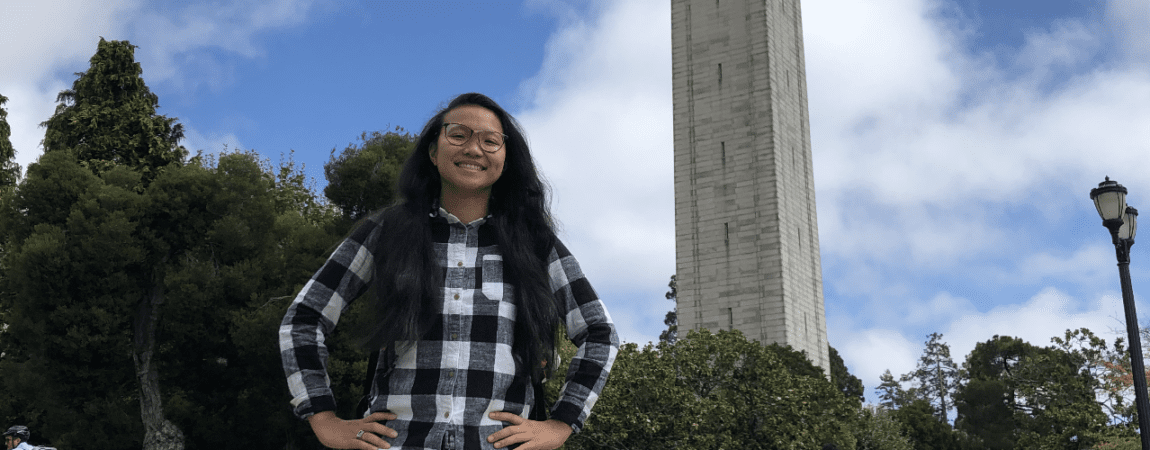On how her passion for STEM has inspired her journey to become a product design engineer.
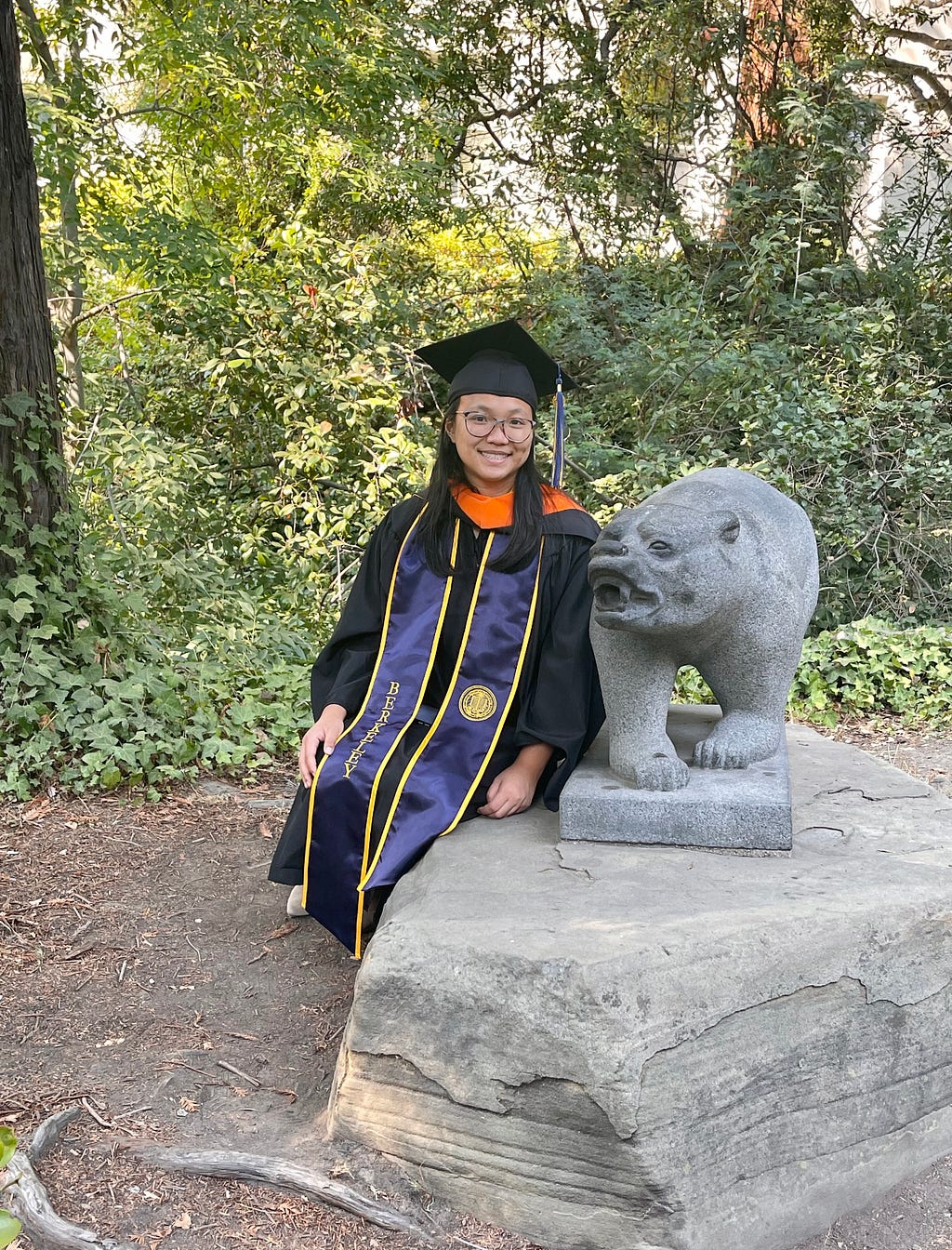
Tell us about yourself and your journey into the MEng program.
I am a first-generation student who grew up near Chicago, Illinois. My parents immigrated to the United States and opened a Chinese take-out restaurant which I grew up helping them with. I went to a public high school and quickly realized that I wanted to go out of state, so I did my undergraduate at the Massachusetts Institute of Technology (MIT) in Mechanical Engineering with a minor in Architecture. I loved prototyping and making things with my hands. I wanted to explore a little more about Mechanical Engineering, so I decided to do the MEng program at UC Berkeley. Being at UC Berkeley was great since I had a lot of choices in classes in the different fields of Mechanical Engineering, in which I settled on Product Design as my concentration. Growing up, I always enjoyed talking to people, so I found Product Design to be a good mix of taking people’s feedback, talking to people, discovering what they need in their lives, and making things for them.What inspired you to dive into the field of engineering?
I enjoyed making things with my hands at a young age, so I have always wanted to make things for them [my parents] at the restaurant to streamline their lives. I remember growing up, I would make crab rangoons on the weekends with them, and it was such a tedious process since we’d make 300 or so in a day, so one day I thought to myself that I would make a machine so I wouldn’t have to do this anymore. Aspects and experiences like these made me want to build things.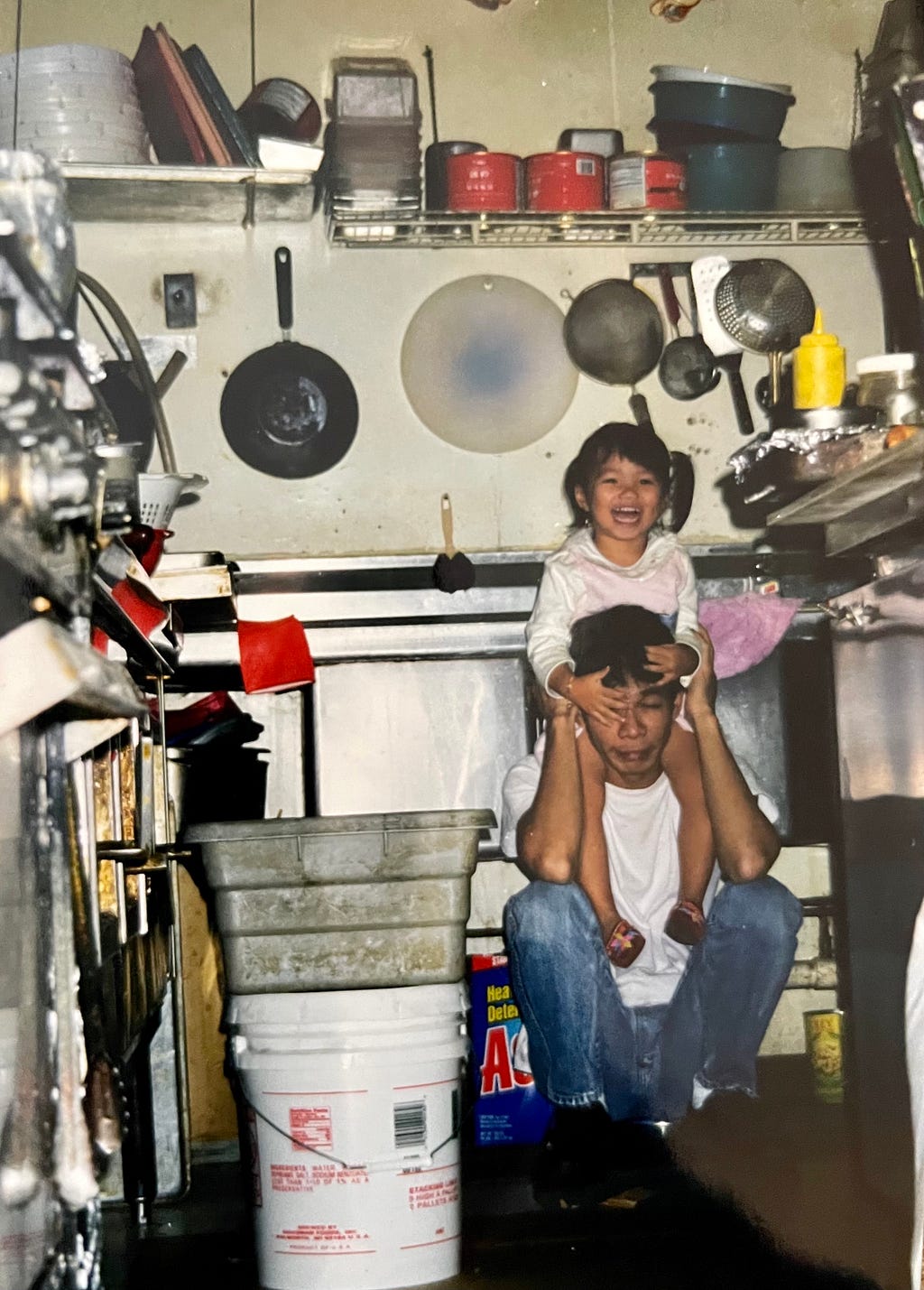
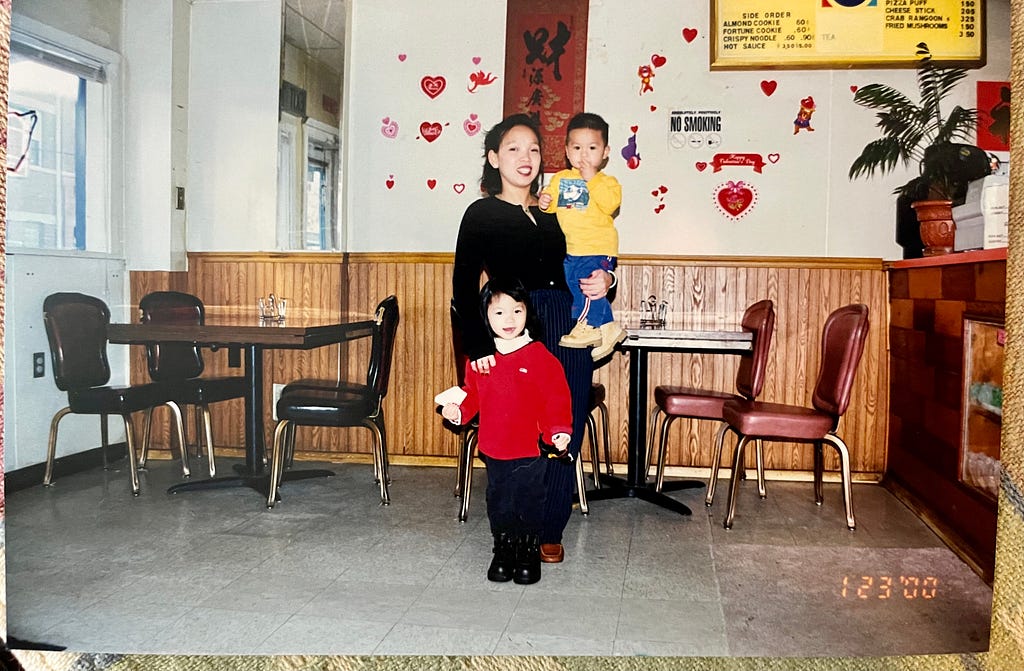
What have you been up to since graduating from the MEng program?
When I was in the MEng program, I worked on the Blue Goji capstone project — doing that project resulted in a job as a Project Manager and Technical Product Design Engineer for Blue Goji. Coming into this role from the MEng program was interesting because Blue Goji is a start-up; we have around 15 -20 people at the Austin, Texas office. I’ve had to wear many hats, which has been exciting since I have to manage my tasks and divide technical challenges and approaches. You can’t be a manager and designer in a typical corporate setting, so I found a good balance at Blue Goji, which was a fantastic opportunity. I also definitely gained a lot of management, communication, and people skills. I’ve had to be resourceful in getting resources and communicating with manufacturers in Austin. Again, because Blue Goji is small in staff, I get to poke my head in different teams. For example, I do not have much experience with Computer Science (CS), but I have been involved in a few CS projects, which I did not think I would ever do, but I enjoyed learning and gaining that experience.How did your experience as a graduate student at MEng prepare you to be a capstone advisor for MEng?
As a graduate student, getting to experience the capstone itself helped and prepared me a lot. It helped me figure out how I wanted to organize this year’s team. We were quarantined during my term, so we lost a Spring semester in-person, but UC Berkeley did a great job pivoting when the pandemic hit. Having the mentee experience, I got to see team dynamics and understand what working in a big team of 10 students feels like. Those experiences helped me make sure I heard everyone’s voices because there were times on my capstone team where ideas were not shared, so I think those feelings are like user research but on myself and my reflections of the experience.“The [MEng] program taught me to be independent, which made me more confident about controlling and guiding my career path.”Moreover, one of the biggest takeaways from being in the MEng program that I learned is that you have the power and ability to forge your own path. A lot of people who come into the MEng program are very smart, but a lot of them get nervous or scared of networking and talking to people. I was — and still am — one of those people. The program taught me to be independent, which made me more confident about controlling and guiding my career path. I loved talking to my career advisors in Shires. I talked to them once a month about resumes and career development, and they provided a lot of good advice and guidance about my career path. Overall, the MEng program made me feel more confident about my career path. MEng’s classes helped narrow down my field, build confidence in my technical skills, and the program made me believe that I can do whatever I want that is in my possession.
Can you briefly describe what this year’s Blue Goji capstone teams are working on?
The Blue Goji team has four capstone projects; three of them are in the Mechanical Engineering (ME) department and one of them is in the Electrical Engineering & Computer Sciences (EECS) department. In the ME projects, we have one team where students will develop an omnidirectional treadmill outfitted with VR equipment for rehab patients. Currently, we have Infinity which is a unidirectional (standard) treadmill where you walk in one direction and can play games in VR at the same time. However, most older adult patients still feel motion sickness on the normal treadmills when fitted with the VR headset so we are speccing out an omnidirectional treadmill with all our sensors so we can track patient progress over time, with the omnidirectional aspect helping with the motion sickness. That is the main one I am the liaison for.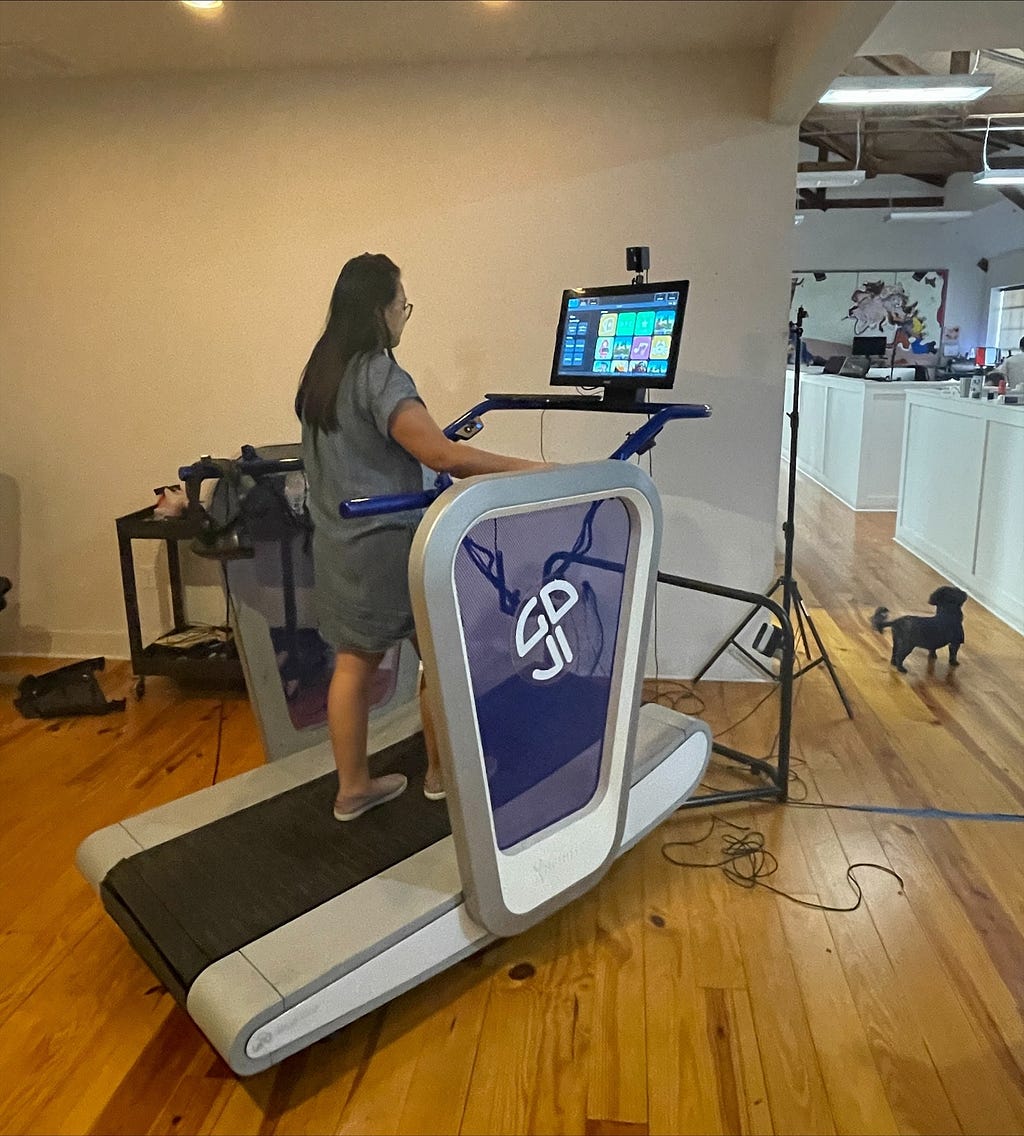
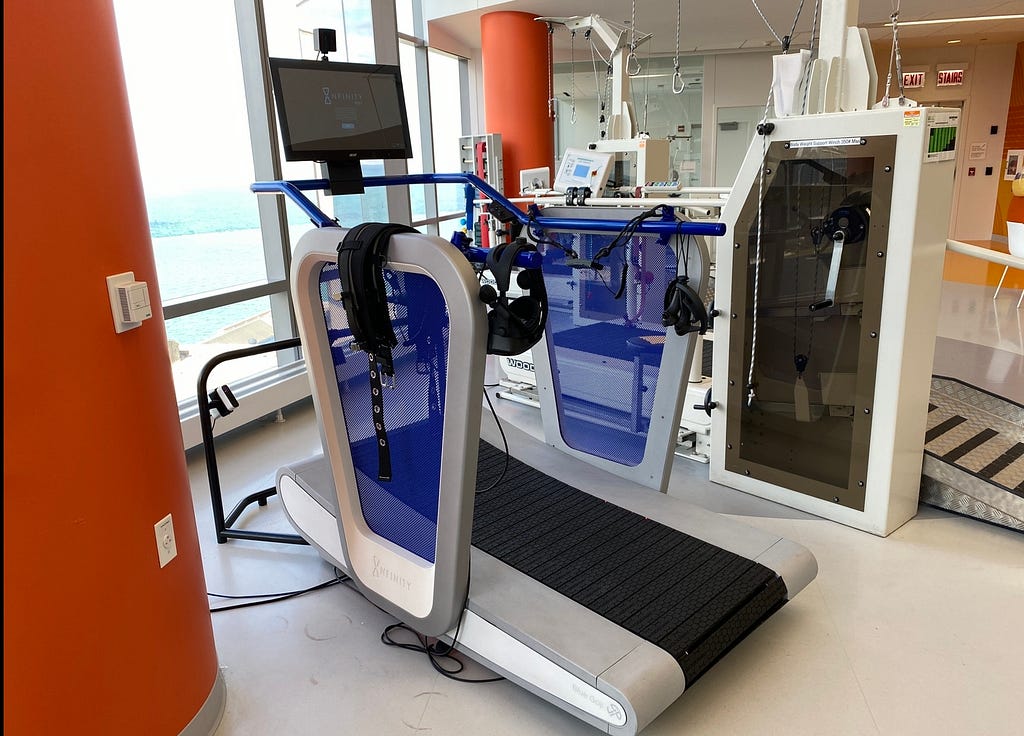
As a capstone advisor and MEng alumni, what insights can you share about the value of the MEng experience?
Initially, what really attracted me to apply to the MEng program was its professors. During my time in the MEng Program, I reached out to Professor Alice Agogino. She taught one of my classes when I was an MEng student, and she is so friendly! The professors here at Berkeley really care about the students. Purin Phanichphant is a Human-Centered Design professor that I often talked to. Purin is open and very friendly and gave good advice about portfolios and potential career paths for me. It was so nice to feel heard from people who are established in their careers; it makes me really optimistic about people in the world. As a young professional, it definitely can be intimidating, but definitely reach out to your network and the people around you. Don’t be nervous, the worst thing they can say is no. During my MEng experience, there were a lot of moments when I felt scared and alone. Job hunting can be intimidating, and I am glad that the MEng program exists because they train you for the real and professional world, so I recommend utilizing all of UC Berkeley’s resources!What has your experience been as a woman in STEM? What does STEM mean to you?
My experience in STEM has been a bumpy one as a woman. In my first internship, I worked for Northrop Grumman, a defense company. The demographic of their workforce is a majority of older white men, so initially, it was a culture shock interning there and experiencing engineering as a male-dominated field. It was pretty intimidating because I went to MIT for my undergraduate program which has a good male-to-female student ratio, and so I had always felt like I could do as much as my male peers. It was insightful and rewarding, and I was fortunate enough to have kind managers throughout all my internships, but my internship experiences have definitely taught me how to shine as a female engineer in a male-dominated field. For my women in STEM, my advice is to talk to established female engineers. There were many times when I reached out to my alumni network through LinkedIn. Everyone I’ve talked to is friendly and wants to see the growth of women in STEM.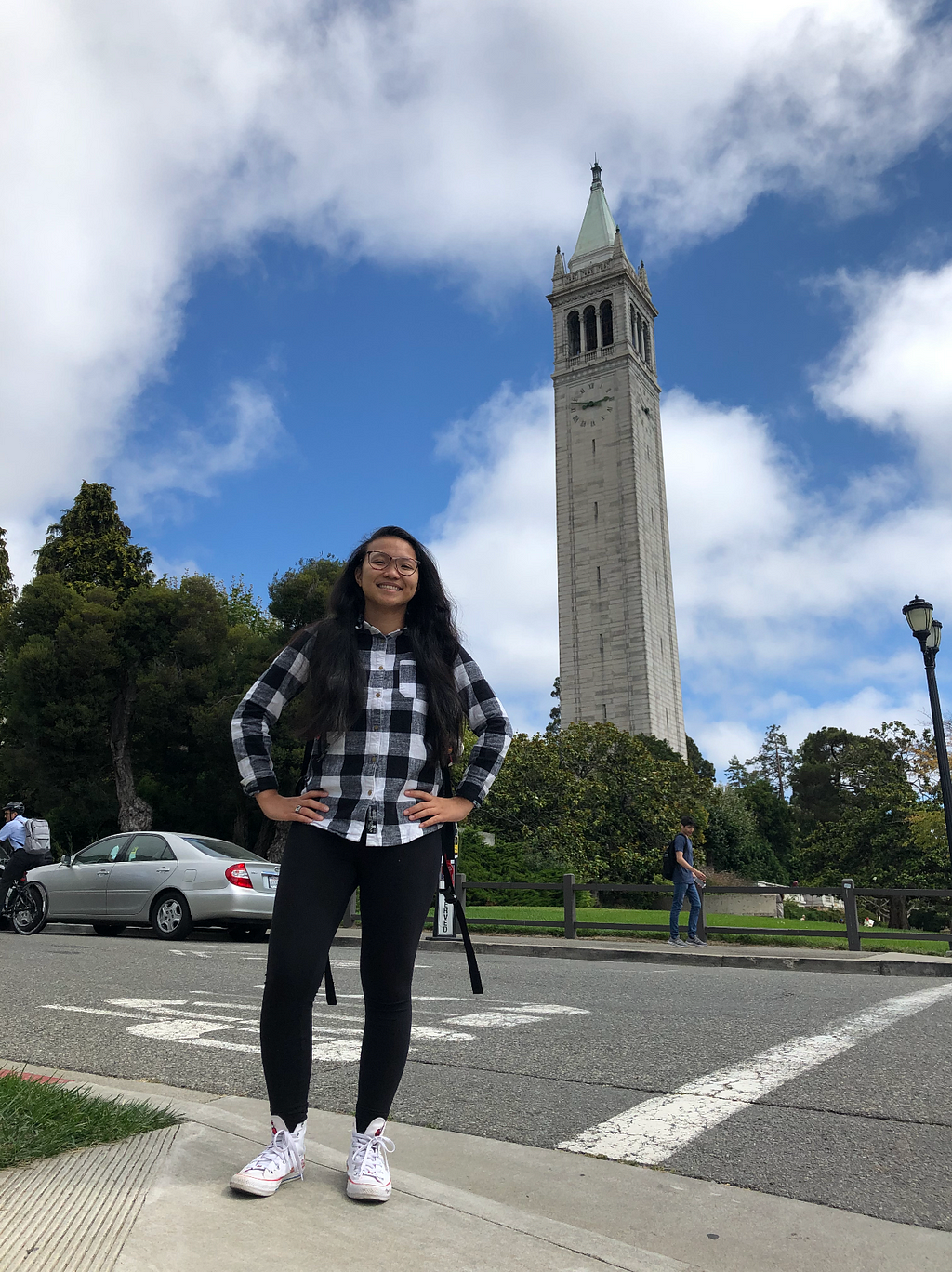
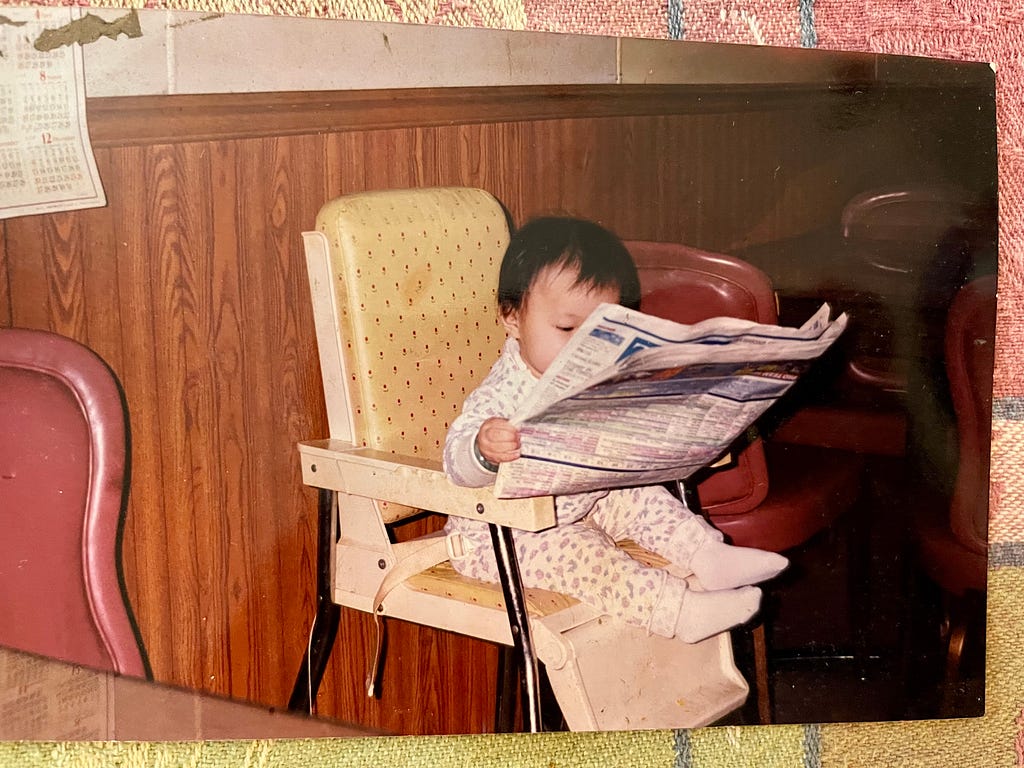
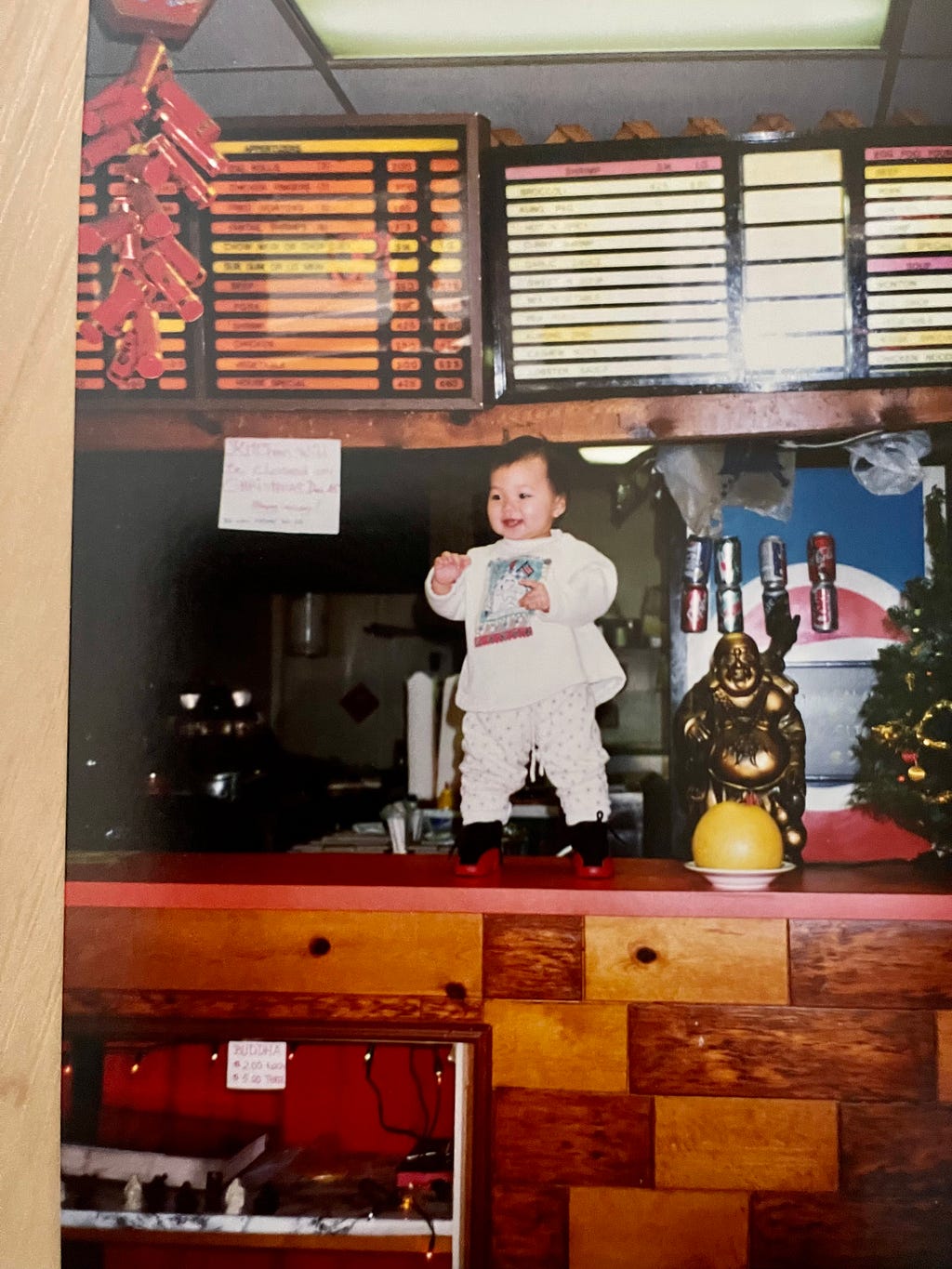
Humans of Fung: Tiffany Tao, MEng ’20 (ME) was originally published in Berkeley Master of Engineering on Medium, where people are continuing the conversation by highlighting and responding to this story.


